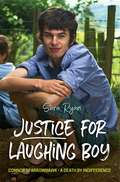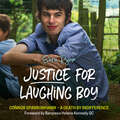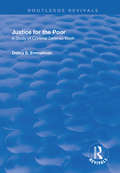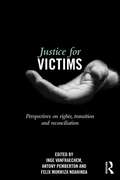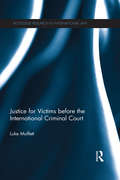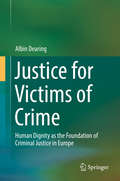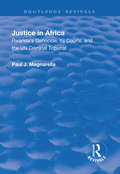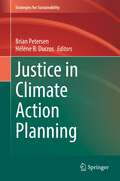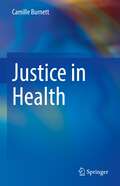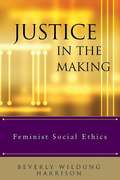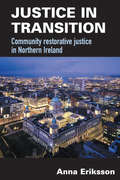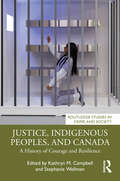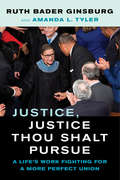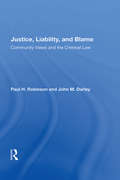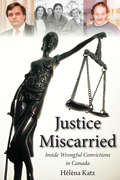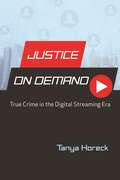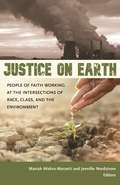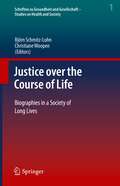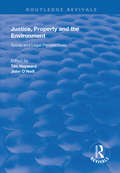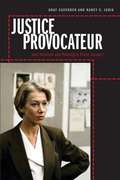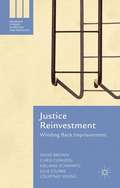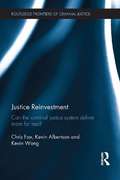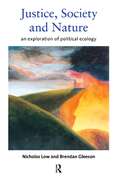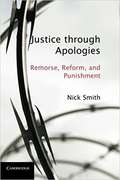- Table View
- List View
Justice for Laughing Boy: Connor Sparrowhawk - A Death by Indifference
by Sara RyanOn July 4th 2013, Connor Sparrowhawk, also known as Laughing Boy or LB, was found dead in a specialist NHS unit. Connor, who had autism and epilepsy, had a seizure while in the bath and no member of staff was on hand to stop him from drowning. An entirely preventable death. Connor's mother Sara Ryan tells the touching story of her remarkable son's early life, then premature death. She articulates the harrowing experience of not only losing a child, but then having to fight to discover the truth about the circumstances of his death. Following Connor's death, Sara and others start the dynamic #JusticeforLB campaign to highlight the injustice of Connor's death. It quickly gains momentum and becomes a rallying cry not only for Connor, but for the many other injustices learning disabled adults experience, leading to high-profile inquiries which uncover shocking rates of premature death among this group. Justice for Laughing Boy tells a very uncomfortable truth about the experiences of people with learning disabilities in inpatient settings today. It serves as a wake-up call to all of us and asks: can we really claim that we respect the life and dignity of learning disabled people?
Justice for Laughing Boy: Connor Sparrowhawk - A Death by Indifference
by Sara RyanA mother's memoir which tells the story of her son's premature death while in NHS care, and her subsequent campaign for justice and for the rights of people with learning disabilities.On July 4th 2013, Connor Sparrowhawk, also known as Laughing Boy or LB, was found dead in a specialist NHS unit. Connor, who had autism and epilepsy, had a seizure while in the bath and no member of staff was on hand to stop him from drowning. An entirely preventable death.Sara Ryan presents a frank, sometimes funny and touching account of her son's early life and preventable death and the unfolding #JusticeforLB campaign. This serves as a wake-up call to all of us and asks: can we really claim that we respect the life and dignity of learning disabled people?(P) 2021 Jessica Kingsley Publishers
Justice for the Poor: A Study of Criminal Defence Work
by Debra S. EmmelmanThis title was first published in 2003. In this study, the author examines the behavior of one group of court-appointed defence attorneys and reaches the conclusion that although, in contrast to popular opinion, these attorneys maintain an adversarial stance against the prosecutors and behave in a legally ethical (or "procedurally just") manner, case outcomes are unduly shaped by social class and are therefore substantively unjust. This occurs because poor defendants typically lack cultural rhetoric that favourably influences those who construct and operate the criminal court system. Ironically, this indicates that, in many cases, the process of plea bargaining may be more substantively just than trials. A major contribution of the study is the detailed analysis of the manner by which oppression and substantive injustice occur in the adjudication of many cases and how the cultural practices of the powerful can frequently misconstrue, exclude and mute the voices of the poor.
Justice for Victims: Perspectives on rights, transition and reconciliation
by Inge Vanfraechem Antony Pemberton Felix Mukwiza Ndahinda Ivo Aertsen Victor Jammers Sonja Leferink Rianne Letschert Stephan ParmentierJustice for Victims brings together the world’s leading scholars in the fields of study surrounding victimization in a pioneering international collection. This book focuses on the current study of victims of crime, combining both legal and social-scientific perspectives, articulating both in new directions and questioning whether victims really do have more rights in our modern world. This book offers an interdisciplinary approach, covering large-scale (political) victimization, terrorist victimization, sexual victimization and routine victimization. Split into three sections, this book provides in-depth coverage of: victims' rights, transitional justice and victims' perspectives, and trauma, resilience and justice. Victims' rights are conceptualised in the human rights framework and discussed in relation to supranational, international and regional policies. The transitional justice section covers victims of war from those caught between peace and justice, as well as post-conflict justice. The final section focuses on post-traumatic stress, connecting psychological and anthropological perceptions in analysing collective violence, mass victimization and trauma. This book addresses challenging and new issues in the field of victimology and the study of transitional and restorative justice. As such, it will be of interest to researchers, practitioners and students interested in the fields of victimology, transitional justice, restorative justice and trauma work.
Justice for Victims before the International Criminal Court (Routledge Research in International Law)
by Luke MoffettMany prosecutors and commentators have praised the victim provisions at the International Criminal Court (ICC) as 'justice for victims', which for the first time include participation, protection and reparations. This book critically examines the role of victims in international criminal justice, drawing from human rights, victimology, and best practices in transitional justice. Drawing on field research in Northern Uganda, Luke Moffet explores the nature of international crimes and assesses the role of victims in the proceedings of the ICC, paying particular attention to their recognition, participation, reparations and protection. The book argues that because of the criminal nature and structural limitations of the ICC, justice for victims is symbolic, requiring State Parties to complement the work of the Court to address victims' needs. In advancing an innovative theory of justice for victims, and in offering solutions to current challenges, the book will be of great interest and use to academics, practitioners and students engaged in victimology, the ICC, transitional justice, or reparations.
Justice for Victims of Crime
by Albin DearingThis book analyses the rights of crime victims within a human rights paradigm, and describes the inconsistencies resulting from attempts to introduce the procedural rights of victims within a criminal justice system that views crime as a matter between the state and the offender, and not as one involving the victim. To remedy this problem, the book calls for abandoning the concept of crime as an infringement of a state's criminal laws and instead reinterpreting it as a violation of human rights. The state's right to punish the offender would then be replaced by the rights of victims to see those responsible for violating their human rights convicted and punished and by the rights of offenders to be treated as accountable agents.
Justice in Africa: Rwanda's Genocide, Its Courts and the UN Criminal Tribunal (Routledge Revivals)
by Paul J MagnarellaThis title was first published in 2000: This work describes the United Nations International Criminal Tribunal for Rwanda (ICTR) - the first international court created to try persons for genocide and violation the humanitarian law of non-international armed conflict. The book begins with an explanation of the causes of the 1994 genocide in Rwanda. It then discusses the UN Security Council's creation of the ICTR and the Tribunal's organization, functioning, accomplishments and shortcomings. The author explains how the Tribunal has gained custody over suspects who had fled to other countries in Africa, Europe and also to the USA. The book analyzes the ICTR's first several cases and describes the unique contributions the Tribunal is making to the expansion of humanitarian law. In addition, the author describes Rwanda's own legal attempts to deal with the trauma of 1994 by passing a new genocide statute and creating special genocide courts. He also explains the similiarities and differences between the Tribunal for Rwanda and the one created by the UN Security Council to deal with major crimes committed during the break-up of former Yugoslavia.
Justice in America: The Separate Realities of Blacks and Whites
by Mark Peffley Jon HurwitzAs reactions to the O. J. Simpson verdict, the Rodney King beating, and the Amadou Diallo killing make clear, whites and African Americans in the United States inhabit two different perceptual worlds, with the former seeing the justice system as largely fair and color blind and the latter believing it to be replete with bias and discrimination. The authors tackle two important questions in this book: what explains the widely differing perceptions, and why do such differences matter? They attribute much of the racial chasm to the relatively common personal confrontations that many blacks have with law enforcement - confrontations seldom experienced by whites. More importantly, the authors demonstrate that this racial chasm is consequential: it leads African Americans to react much more cynically to incidents of police brutality and racial profiling, and also to be far more skeptical of punitive anti-crime policies ranging from the death penalty to three-strikes laws.
Justice in Climate Action Planning (Strategies for Sustainability)
by Brian Petersen Hélène B. DucrosThis edited volume examines how climate action plans engage justice at the scale of the city. Recent events in the United States make the context particularly ripe for a discussion of justice in urban climate politics. On the one hand, the emergence of the Black Lives Matter movement, George Floyd’s death, and the prominence of racial discrimination in the public realm have mainstreamed the notion of justice. On the other hand, the dire consequences of increased frequency and severity of climate events on vulnerable segments of urban populations are undeniable. While some cities have been proactive about integrating justice in their climate action planning, in most places an explicit and systematic link between both spheres has been lacking. This book explores this interface as it seeks to understand how cities can respond to climate change in a just way and for just outcomes. While resilience strategies based on “development” may engage historic inequities, they may at the same time result in marginalizing certain populations through various processes, from mismatched solutions to outright exclusion and climate gentrification. By identifying how certain populations are included in or excluded from climate action planning practices, the chapters in this volume draw on case studies to outline the differential outcomes of climate action in American cities, also proposing a template for comparative work beyond the US. The authors tackle the debate about how justice is or is not integrated in climate action plans and assess practical implications, while also making theoretical and methodological contributions. As it fills a gap in the literature at the intersection of justice and climate action, the book produces new insights for a wide-ranging audience: students, practitioners, policy-makers, planners, the non-profit sector, and scholars in geography, urban planning, urban studies, environmental studies, ecology, political science, or anthropology. Along five axes of investigation―theory, resilience, equity, community, and comparison as method―the contributors offer various pathways into the intersection between urban climate action and different understandings of justice. Collectively, they invite a reflection that can lead to practical initiatives in climate mitigation, while also advancing the theorization of social justice to account for the urban as a node where (in)justice plays out and can be addressed with significant results.
Justice in Health
by Camille BurnettInequities and health disparities are the greatest and most pressing social issues of our time. This book explores public health practice through the critical lens of social and structural justice by examining our approach to health and what it means to be healthy, systemically and structurally.Through recent events, the raw reality of health disparities and inequities have been exposed. These events are earmarked by COVID-19's decimating and disparate impacts on Black and Brown populations during one of the greatest social movements of our time to end racism. Since this very public explosion of intersecting forms of oppression and inequitable suffrage, many have clamored to make sense of it, to reframe our narratives toward action, and re-envision what progress and change could look like. This text is positioned as a tool to help professionals dismantle old ways of thinking while reconstructing new ones that can be more responsive in meeting the realities of today.The author challenges the reader to think about public health more deeply and pragmatically as the space for reconciling solutions to these poignant health issues. This requires the exploration of an ideological shift in how we think of health, how we prepare healthcare providers outside of an antiquated sick care system, and how we prioritize the determinants of health across a re-imagined continuum of care. The scope of this book ranges from a historical and structural examination of our beliefs about health to perceiving a more just system of care where health is intentionally co-created toward this aim. It intentionally explores health along the lines of equity and through the broader lens of the social determinants of health to shed light on the opportunity in this moment that public health creates for health care.Justice in Health is a timely and important resource for healthcare professionals (pre- and post-licensure) and healthcare decision-makers. The book also appeals more widely to instructors, academics, researchers, and students across disciplines of nursing, medicine, public heath, sociology, and social work.
Justice in the Making: Feminist Social Ethics
by Beverly Wildung HarrisonThis collection of essays and lectures of Beverly Harrison who has long fought for women and others at the margins, challenging the subjugating ways in which women's intellectual contributions, their gifts of ministerial leadership, and their reproductive capacity and sexual identity have been defined, demonstrates the progression of Harrison's contribution to the field of Christian ethics and the evolution of her thought in response to changing social realities.
Justice in Transition
by Anna ErikssonThis book provides a unique account of the high-profile community-based restorative justice projects in the Republican and Loyalist communities that have emerged with the ending of the conflict in Northern Ireland. Unprecedented new partnerships between Republican communities and the Police Service of Northern Ireland have developed, and former IRA and UVF combatants and political ex prisoners have been amongst those involved. Community restorative justice projects have been central to these groundbreaking changes, acting as both facilitator and transformer. Based on an extensive range of interviews with key players in this process, many of them former combatants, and unique access to the different community projects this books tells a fascinating story. At the same time this book explores the wider implications for restorative justice internationally, highlighting the important lessons for partnerships between police and community in other jurisdictions, particularly in the high-crime alienated neighbourhoods which exist in most western societies, as well as transitional ones. It also offers a critical analysis of the roles of both community and state and the tensions around the ownership of justice, and a critical, unromanticized assessment of the role of restorative justice in the community.
Justice, Indigenous Peoples, and Canada: A History of Courage and Resilience (Routledge Studies in Crime and Society)
by Kathryn M Campbell Stephanie WellmanJustice, Indigenous Peoples, and Canada: A History of Courage and Resilience brings together the work of a number of leading researchers to provide a broad overview of criminal justice issues that Indigenous people in Canada have faced historically and continue to face today. Both Indigenous and Canadian scholars situate current issues of justice for Indigenous peoples, broadly defined, within the context of historical realities and ongoing developments. By examining how justice is defined, both from within Indigenous communities and outside of them, this volume examines the force of Constitutional reform and subsequent case law on Indigenous rights historically and in contemporary contexts. It then expands the discussion to include theoretical considerations, particularly settler colonialism, that help explain how ongoing oppressive and assimilationist agendas continue to affect how so-called "justice" is administered. From a critical perspective, the book examines the operation of the criminal justice system, through bail, specialized courts, policing, sentencing, incarceration and release. It explores legal frameworks as well as current issues that have significantly affected Indigenous peoples, such as the Truth and Reconciliation Commission, the Inquiry into Missing and Murdered Indigenous Women and Girls, human rights, resurgence and identity. This unique collection of perspectives exposes the disconcerting agenda of historical and modern-day Canadian federal government policy and the continued denial of Indigenous rights to self-determination. It is essential reading for those interested in the struggles of the Indigenous peoples in Canada as well as anyone studying race, crime and justice.
Justice, Justice Thou Shalt Pursue: A Life's Work Fighting for a More Perfect Union (Law in the Public Square #2)
by Ruth Bader GinsburgRuth Bader Ginsburg's last book is a curation of her own legacy, tracing the long history of her work for gender equality and a "more perfect Union." In the fall of 2019, Justice Ruth Bader Ginsburg visited the University of California, Berkeley School of Law to deliver the first annual Herma Hill Kay Memorial Lecture in honor of her friend, the late Herma Hill Kay, with whom Ginsburg had coauthored the very first casebook on sex-based discrimination in 1974. Justice, Justice Thou Shalt Pursue is the result of a period of collaboration between Ginsburg and Amanda L. Tyler, a Berkeley Law professor and former Ginsburg law clerk. During Justice Ginsburg's visit to Berkeley, she told her life story in conversation with Tyler. In this collection, the two bring together that conversation and other materials—many previously unpublished—that share details from Justice Ginsburg's family life and long career. These include notable briefs and oral arguments, some of Ginsburg's last speeches, and her favorite opinions that she wrote as a Supreme Court Justice (many in dissent), along with the statements that she read from the bench in those important cases. Each document was chosen by Ginsburg and Tyler to tell the story of the litigation strategy and optimistic vision that were at the heart of Ginsburg's unwavering commitment to the achievement of "a more perfect Union." In a decades-long career, Ruth Bader Ginsburg was an advocate and jurist for gender equality and for ensuring that the United States Constitution leaves no person behind. Her work transformed not just the American legal landscape, but American society more generally. Ginsburg labored tirelessly to promote a Constitution that is ever more inclusive and that allows every individual to achieve their full human potential. As revealed in these pages, in the area of gender rights, Ginsburg dismantled long-entrenched systems of discrimination based on outdated stereotypes by showing how such laws hold back both genders. And as also shown in the materials brought together here, Justice Ginsburg had a special ability to appreciate how the decisions of the high court impact the lived experiences of everyday Americans. The passing of Justice Ruth Bader Ginsburg in September 2020 as this book was heading into production was met with a public outpouring of grief. With her death, the country lost a hero and national treasure whose incredible life and legacy made the United States a more just society and one in which "We the People," for whom the Constitution is written, includes everyone.
Justice, Liability, And Blame: Community Views And The Criminal Law
by Paul H. RobinsonThis book examines shared intuitive notions of justice among laypersons and compares the discovered principles to those instantiated in American criminal codes. It reports eighteen original studies on a wide range of issues that are central to criminal law formulation.
Justice Miscarried
by Helena KatzFormer bank manager Ronald Dalton never got to watch his three young children grow up. In 1989 he was convicted for a crime that never happened. His wife, Brenda, was later ruled to have choked to death on breakfast cereal not strangled as a pathologist had initially claimed. Dalton’s daughter, Alison, was in kindergarten when he was charged with second-degree murder in 1988. He attended her high school graduation on June 26, 2000, two days after his conviction was finally overturned. <p><p> Behind the proud facade of Canada’s criminal justice system lie the shattered lives of the people unjustly caught within its web. Justice Miscarried tells the heartwrenching stories of twelve innocent Canadians, including David Milgaard, Donald Marshall, Guy Paul Morin, Clayton Johnson, William Mullins-Johnson, and Thomas Sophonow, who were wrongly convicted and the errors in the nations justice system that changed their lives forever.
Justice on Demand: True Crime in the Digital Streaming Era (Contemporary Approaches to Film and Media Series)
by Tanya HoreckJustice on Demand: True Crime in the Digital Streaming Era offers a theoretical rumination on the question asked in countless blogs and opinion pieces of the last decade: Why are we so obsessed with true crime? Author Tanya Horeck takes this question further: Why is true crime thought to be such a good vehicle for the new modes of viewer/listener engagement favored by online streaming and consumption in the twenty-first century? Examining a range of audiovisual true crime texts, from podcasts such as Serial and My Favorite Murder to long-form crime documentaries such as The Jinx and Making a Murderer, Horeck considers the extent to which the true crime genre has come to epitomize participatory media culture where the listener/viewer acts as a "desktop detective" or "internet sleuth." While Facebook and Twitter have re-invigorated the notion of the armchair detective, Horeck questions the rhetoric of interactivity surrounding true crime formats and points to the precarity of justice in the social media era. In a cultural moment in which user-generated videos of real-life violence surface with an alarming frequency, Justice on Demand addresses what is at stake in the cultural investment in true crime as packaged mainstream entertainment. Paying close attention to the gendered and racialized dimensions of true crime media, Horeck examines objects that are not commonly considered "true crime," including the subgenre of closed-circuit television (CCTV) elevator assault videos and the popularity of trailers for true crime documentaries on YouTube. By analyzing a range of intriguing case studies, Horeck explores how the audience is affectively imagined, addressed, and commodified by contemporary true crime in an "on demand" mediascape. As a fresh investigation of how contemporary variations of true crime raise significant ethical questions regarding what it means to watch, listen, and "witness" in a digital era of accessibility, immediacy, and instantaneity, Justice on Demand will be of interest to film, media, and digital studies scholars.
Justice on Earth: People of Faith Working at the Intersections of Race, Class, and the Environment
by Jennifer Nordstrom Manish Mishra-MarzettiThis highly anticipated anthology presents a powerful and penetrating look at environmental justice from some of the key thinkers and activists in Unitarian Universalism today. Fourteen activist ministers and lay leaders apply a keen intersectional analysis to the environmental crisis, revealing ways that capitalism, white supremacy, patriarchy, and other systems of oppression intersect with and contribute to ecological devastation. They also explore how spiritual practices, congregational organizing, and progressive theology can inform faith-based justice work in the twenty-first century. These prophetic voices, from a wide range of perspectives, reveal new approaches and opportunities for more holistic, accountable, and connected justice efforts. Each essay is accompanied by suggested ways to take the next steps for further learning and action.
Justice over the Course of Life: Biographies in a Society of Long Lives (Schriften zu Gesundheit und Gesellschaft - Studies on Health and Society #1)
by Christiane Woopen Björn Schmitz-LuhnIn this interdisciplinary book, experts from philosophy, medicine, law, psychology, economics, and social sciences address questions and develop solutions for a well-designed society of long life. Young as well as old people have to actively shape more and more of their life span. At the same time, aging becomes more multifaceted: the individual view on one’s own life course is changing, and the needs and demands for a fulfilled life are diversifying. The implications affect all spheres of life – from education and workplace to health care and the culture of interaction. They require content-related and structural adjustments for a diverse society of longevity in which multiple generations live alongside each other. But how can change be managed responsibly, how can individual and collective responsibility be distributed appropriately, and how can a sustainable and fair social future be ensured?
Justice, Property and the Environment: Social and Legal Perspectives (Routledge Revivals)
by John O'Neill Tim HaywardFirst published in 1997, this book discusses the interplaying factors environmental issues have on justice and property and other social problems. Endeavouring create a discourse on what sustainability means in implementation, each of the contributors to this book approaches this via different theoretical viewpoints.
Justice Provocateur: Jane Tennison and Policing in Prime Suspect
by Gray Cavender Nancy C. JurikJustice Provocateur focuses on Prime Suspect, a popular British television film series starring Oscar and Emmy award-winning actress Helen Mirren as fictional London policewoman Jane Tennison. Gray Cavender and Nancy C. Jurik examine the media constructions of justice, gender, and police work in the show, exploring its progressive treatment of contemporary social problems in which women are central protagonists. They argue that the show acts as a vehicle for progressive moral fiction--fiction that gives voice to victim experiences, locates those experiences within a larger social context, transcends traditional legal definitions of justice for victims, and offers insights into ways that individuals might challenge oppressive social and organizational arrangements. Although Prime Suspect is often seen as a uniquely progressive, feminist-inspired example within the typically more conservative, male-dominated crime genre, Cavender and Jurik also address the complexity of the films' gender politics. Consistent with some significant criticisms of the films, they identify key moments in the series when Tennison's character appears to move from a successful woman who has it all to a post-feminist stereotype of a lonely, aging career woman with no strong family or friendship ties. Shrewdly interpreting the show as an illustration of the tensions and contradictions of women's experiences and their various relations to power, Justice Provocateur provides a framework for interrogating the meanings and implications of justice, gender, and social transformation both on and off the screen.
Justice Reinvestment: Winding Back Imprisonment (Palgrave Studies in Prisons and Penology)
by David Brown Courtney Young Chris Cunneen Melanie Schwartz Julie StubbsJustice reinvestment was introduced as a response to mass incarceration and racial disparity in the United States in 2003. This book examines justice reinvestment from its origins, its potential as a mechanism for winding back imprisonment rates, and its portability to Australia, the United Kingdom and beyond. The authors analyze the principles and processes of justice reinvestment, including the early neighborhood focus on 'million dollar blocks'. They further scrutinize the claims of evidence-based and data-driven policy, which have been used in the practical implementation strategies featured in bipartisan legislative criminal justice system reforms. This book takes a comparative approach to justice reinvestment by examining the differences in political, legal and cultural contexts between the United States and Australia in particular. It argues for a community-driven approach, originating in vulnerable Indigenous communities with high imprisonment rates, as part of a more general movement for Indigenous democracy. While supporting a social justice approach, the book confronts significantly the problematic features of the politics of locality and community, the process of criminal justice policy transfer, and rationalist conceptions of policy. It will be essential reading for scholars, students and practitioners of criminal justice and criminal law.
Justice Reinvestment: Can the Criminal Justice System Deliver More for Less? (Routledge Frontiers of Criminal Justice)
by Chris Fox Kevin Wong Kevin AlbertsonRising prison numbers on both sides of the Atlantic are cause for concern. Justice Reinvestment is a major movement in criminal justice reform in the US that is also attracting lots of interest in the UK. Justice Reinvestment is an approach to addressing the penal crisis that uses the best available evidence to re-direct resources to more effective rehabilitation of offenders and better ‘prehabilitation’. It takes a more holistic view of criminal justice and is particularly concerned to address the community dimensions of offending and re-offending. The authors highlight competing models of Justice Reinvestment and argue for a more radical version in which criminal justice reform is seen as part of a wider social justice reform programme. This is the first substantial publication on Justice Reinvestment and shows that ‘Justice Reinvestment’ has huge potential to re-shape the criminal justice system. It will be essential reading for undergraduate and post-graduate students with an interest in criminal justice reform. Practitioners and policy-makers working in the criminal justice system in the US and the UK will also value the fresh perspective it brings to criminal justice reform and its breadth of coverage including insights into the penal crisis, different models of Justice Reinvestment, the use of criminal justice data and research evidence in re-designing criminal justice services and new approaches to commissioning.
Justice, Society and Nature: An Exploration of Political Ecology
by Nicholas Low Brendan GleesonJustice, Society and Nature examines the moral response which the world must make to the ecological crisis if there is to be real change in the global society and economy to favour ecological integrity. From its base in the idea of the self, through principles of political justice, to the justice of global institutions, the authors trace the layered structure of the philosophy of justice as it applies to environmental and ecological issues. Philosophical ideas are treated in a straightforward and easily understandable way with reference to practical examples. Moving straight to the heart of pressing international and national concerns, the authors explore the issues of environment and development, fair treatment of humans and non-humans, and the justice of the social and economic systems which affect the health and safety of the peoples of the world. Current grass-roots concerns such as the environmental justice movement in the USA, and the ethics of the international regulation of development are examined in depth. The authors take debates beyond mere complaint about the injustice of the world economy, and suggest what should now be done to do justice to nature.
Justice through Apologies: Remorse, Reform, and Punishment
by Nick SmithIn this follow up to I Was Wrong: The Meanings of Apologies, Nick Smith expands his ambitious theories of categorical apologies to civil and criminal law. After rejecting court-ordered apologies as unjustifiable humiliation, this book explains that penitentiaries were originally designed to bring about penance - something like apology - and that this tradition has been lost in the assembly line of mass incarceration. Smith argues that the state should modernize these principles and techniques to reduce punishments for offenders who demonstrate moral transformation through apologizing. Smith also explains the counterintuitive situation whereby apologies come to have considerable financial worth in civil cases because victims associate them with priceless matters of the soul. Such confusions allow powerful wrongdoers to manipulate perceptions to disastrous effect, such as when corporations or governments assert that apologies do not equate to accepting blame or require reform or redress.
